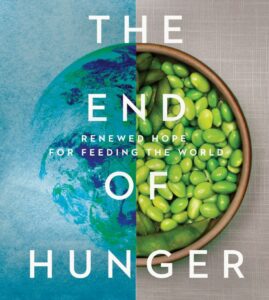 In 2000, I sat down and calculated how much my wife, Beverly, and I had earned since our marriage in 1986. I found we were approaching a million dollars in earnings, with a shared average annual income of $63,000. That struck me as a lot to be responsible for. And Jesus made it quite clear that for everyone who had been given much, much was expected (Luke 12:48). So these calculations were both a gift and a weight to contemplate.
In 2000, I sat down and calculated how much my wife, Beverly, and I had earned since our marriage in 1986. I found we were approaching a million dollars in earnings, with a shared average annual income of $63,000. That struck me as a lot to be responsible for. And Jesus made it quite clear that for everyone who had been given much, much was expected (Luke 12:48). So these calculations were both a gift and a weight to contemplate.
We decided to write an article for our church newsletter in which we disclosed how much we earned and how much we gave away in the previous decade. We also listed totals for taxes, Social Security, childcare, and housing, and we shared some of our values about and practices with money. Our intent was not to shock, shame, or brag. An Albert Schweitzer quote that our daughter’s kindergarten teacher sent home at the time perhaps best summed up our reason: “Example is not the main thing in influencing others—it is the only thing.”
Our intent was to challenge ourselves and to model greater transparency in this area of life, an area that we know to be the most private aspect of life in Western culture and especially (and very sadly) so for Christians. As Robert Wuthrow wrote in a 1993 Christian Century article:
The darkest taboo in our culture is not sex or death, but money… We feel that our money is none of their business…In [our] survey 89 percent said they never or hardly ever discussed their family budget with people outside their immediate family. The proportion who seldom discussed personal finances with fellow church people was even higher—97 percent. Ironically, while most of us worry about our money (and many of us even fret about the fact that we are worried), we do so alone. We do not place ourselves in a position to benefit from the counsel of others. Nor do we try to gain the kind of perspective that might come from articulating and testing our own views more openly.
After the newsletter was circulated, I placed an announcement in the church bulletin expressing an interest in forming a group to discuss faith and money. Not many responded, but almost everyone who expressed interest joined the group, and we started with a committed six: men and women, both married and single, but no couples. Our first meeting began with everyone sharing his or her interest in the group, followed by the most anticipated activity: Using a white board, we each disclosed our previous year’s earned income and giving. Some trepidation was present, but, as I have learned over the years, there is power in sharing your information, in naming it in front of others. The power of this transparency is less about what others may think of your earning/giving and more about the vulnerability of bringing these things into the light.
“There are three conversions necessary: the conversion of the heart, the mind, and the purse.” ~ Martin Luther
The Money Group, as we call ourselves, meets to this day, three to four times a year for two hours, with a different person hosting each time. Each time we meet, we wish we did so more often. Conversation begins by checking back from the previous meeting: How was that vacation you were contemplating, or that car purchase, or your decision to give unsolicited cash each week to homeless people? We then launch into the topics of the evening. These are simply any issues related to money that we want to bring up. One person will ask what we think he should do about an IRA; another will share about how she prioritizes her giving to individuals and organizations or what she is considering spending on a home renovation project. Each person shares his or her thought process, and the group asks questions, shares various perspectives, challenges, and encourages.
Every two years we update the group on our income and on our giving, facilitated mainly by bringing 1040s and supporting documents. Periodically we have disclosed our full assets to each other: home value, retirement and college funds and other savings vehicles, and any debts. Once we tracked our expenses and shared that with the group.
Here we are 14 years later, with five original members and three new members who joined in the last eight years. What has held us together for these many years? Choosing to be vulnerable and sharing values has established a trust between us. Experiencing the deep value of relational engagement in this crucial area of life has developed camaraderie. And much of our lives are on the table, as money relates to most every aspect of it. So we reveal a lot of what is going on: from home, car, and vacation choices to insurance, college, and retirement planning; from gift buying and investments to the choices, priorities, and thinking behind our giving—and much more. We also cheer each other on—it’s not at all about piling on or beating up each other. It’s about being deliberate, and hopefully prayerful, with money and making choices to enjoy it, too.
Martin Luther said, “There are three conversions necessary: the conversion of the heart, the mind, and the purse.” We seek to engage in the latter conversion—through rich conversation. I am confident that this is critical to the light of Christ shining into that well-guarded purse of ours.
Rev. Jonathan W. Hancock has both planted and pastored churches and has directed both a senior center and an outreach to men in the sex trade. He lives in Chicago with his wife and two teenage daughters.


